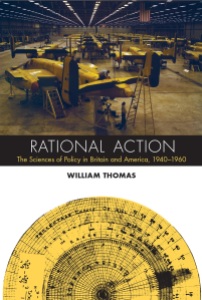Historian of economics Beatrice Cherrier has asked what a history of policy analysis might look like. She quite reasonably notes that, as a faculty member at the Centre de Researche en Économie et Management at Rennes, she wants her “students to know why and how the theories, tools and practices they will later use on a daily basis were conceived and spread, and a good 80% of them will participate in a policy evaluation in the next 10 years.”
 I suspect we will be best served in answering this call if we admit the poverty of our current historical knowledge. We have a number of useful historical studies of various bits of policy analysis, and many more dislocated fragments of such a history are also to be found in the practitioner literature. However, I do not think we can even, at this stage, outline what a synthetic history would look like.
I suspect we will be best served in answering this call if we admit the poverty of our current historical knowledge. We have a number of useful historical studies of various bits of policy analysis, and many more dislocated fragments of such a history are also to be found in the practitioner literature. However, I do not think we can even, at this stage, outline what a synthetic history would look like.
I arrive at this conclusion out of lessons learned while researching and writing my book, Rational Action, which is due out in a couple of months (and which I will not attempt to dissuade you from pre-ordering). The book uses 300 pages of text to outline the history of a cluster of influential fields—primarily operations research/management science (OR/MS), systems analysis, and decision theory—that developed in the middle of the twentieth century.
One of the key lessons learned is that many, including most historians, have been too quick to assume that they understood the basic outlines of the story as having primarily to do with these sciences’ attempts to apply “scientific” methodology to the realm of policy. Conceived in this way, the history becomes one of various attempts to define what constitutes a properly scientific approach, and of various attempts to command authority through the application of such an approach. As a consequence, the histories of very different fields become blurred together as part of a general mid-twentieth-century movement to make politics and society more scientific.
Read More…Read More…